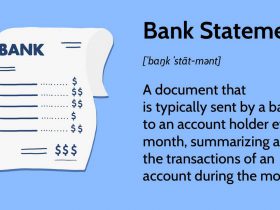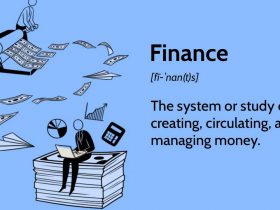Hard Money vs. Soft Money: An Overview
There are several ways to define the terms "hard money" and "soft money." How you define them depends on what context you take.
In their simplest form, hard money and soft money are used to describe different kinds of currency in economics. Hard money refers to coins or specie, while soft money refers to paper currency.
Hard and soft money can also refer to how clients pay their brokers or financial services providers. In this case, hard money refers to direct payments for services rendered¡ªbrokerage commissions¡ªwhile soft money refers to payments for indirect items, such as the settlement of a costly error by providing free research. Soft money arrangements in the financial industry are common but are not usually disclosed to stakeholders and regulators.
But the terms also have a role in politics. They are used to refer to political contributions in the United States. Money contributed directly to a specific candidate is known as hard money, while indirect contributions to political parties and political action committees are known as soft money. It is important to clarify the distinction between political contributions in the form of hard and soft money.
Key Takeaways
- Money contributed directly to a specific candidate is known as hard money, while indirect contributions to political parties and political action committees are considered soft money.
- The rules governing the two types of contributions differ.
- Hard and soft money can also refer to how clients pay their brokers or financial services providers.
Investopedia / Alison Czinkota
Hard Money
For example, during the 2023¨C2024 election cycle, donors are subject to the following limits:?$5,000?per candidate, per election, from a non-connected committee that qualifies as a multi-candidate committee. Donating to a candidate or candidates in excess of those federal limits can result in criminal charges, including fines and jail time for violating campaign finance laws.
| Contribution Limits for 2023-24 Federal Elections | |||
|---|---|---|---|
| To each candidate or candidate committee per election | To national party committee per calendar year | To state, district & local party committee per calendar year | To any other political committee per calendar year |
| $3,300 | $41,300 | $10,000 (combined limit) | $5,000 |
Soft Money
Cash contributed to a political party or political action committee with no limits attached to the amount that can be received is known as a “soft money” contribution. The funds can come from individuals and political action committees as with “hard money,” but they can also come from any other source, such as corporations.
When cash is contributed directly to a political candidate, it is known as a "hard money" contribution. These contributions may only come from an individual or a political action committee (PAC) and must follow the strict limits set forth by the Federal Election Commission (FEC).
The Supreme Court's interpretation of the law says soft money can only be used for "party-building activities," such as advocating the passage of a law and voter registration, and not for advocating a particular candidate in an election.??
The 2010 Supreme Court case Citizens United v. Federal Election Commission says that soft money contributions can be unlimited in that they constitute a form of free speech protected by the First Amendment, although this ruling has remained controversial.
PACs that receive unlimited funds as soft money cannot be directly linked to, or directed by, the political candidate or candidates they support. This is an important caveat because if a candidate is found to be dictating what message or television ad the PAC or Super PAC will air, they are considered to be directly influencing how the money is used, making it a hard money contribution¡ªand violating campaign finance laws.
Hard Money and Soft Money Contribution Rules
The rules governing the two types of contributions differ, so before making a contribution, it may be prudent to check these rules in detail. More information on these rules can be found on the Federal Election Commission (FEC) website.
What Is a Hard Money Loan?
In real estate, a hard money loan is a short-term secured loan for commercial or real estate properties that does not conform to the mortgage guidelines for Fannie Mae or Freddie Mac. Commercial borrowers may turn to hard money loans if they have had their mortgage application denied, or if they do not want to go through the lengthy process of being approved for a traditional mortgage. However, hard money loans tend to have higher interest rates, so interest-sensitive borrowers might be better off looking for the best mortgage lenders.
What Is the Soft Money Loophole?
Soft money refers to unregulated donations to political action committees or parties, in contrast to the strict rules for donations to specific candidates or campaigns. Because soft money rules allow corporations and wealthy donors to influence races, at a level far above the individual contribution limits, they are sometimes described as a "loophole" in campaign spending laws.
What Is the Advantage of Hard Money?
In economics, hard money refers to currency that is tied to the value of gold or silver, in contrast to fiat or paper money. Monetarists believe that a hard money policy makes it harder to dilute the money supply through printing or inflation, thereby allowing the currency to preserve its value.
The Bottom Line
The terms hard and soft money can have different meanings depending on how they are used. In economics, hard money is closely tied to the value of gold or silver, in contrast to paper money that can be printed at will. In politics, hard money refers to contributions to a specific candidate, compared to soft money contributions to a broader committee or party.













Leave a Reply